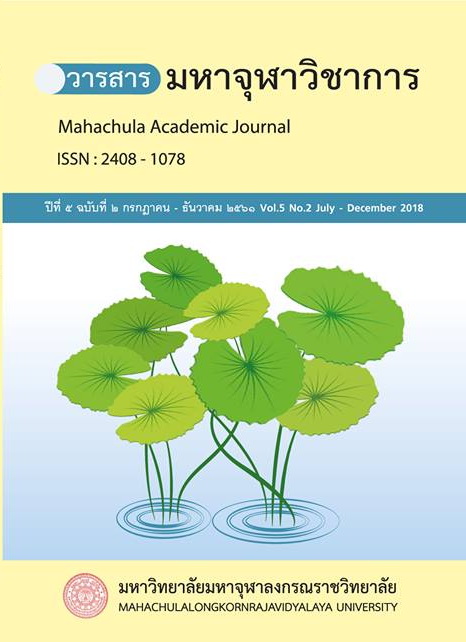A Concept of Individualism in Theravada Buddhist Philosophy
Main Article Content
Abstract
This dissertation is a study of the concepts of individualism in Theravada Buddhist philosophy consist of three objectives: (1) to study the concept of individualism in existential philosophy (2) to study the concepts of individualism in Theravada Buddhist philosophy (3) to analyze the concepts of individualism in Theravada Buddhist philosophy by documentary study.
The study found that individualism in the preservation philosophy is popular with the freedom and responsibility to choose an enterprise with identity and acceptance. It will happen to themselves and to the society in which freedom is accepted and responsible for the truth. Individualism in Theravada Buddhist Philosophy discusses the unique characteristics of humanity that each person is capable of practicing in order to seek the truth of life according to his or her own ideas and paths. To develop a mental independence that does not hold on to objects and knows the realities of life and society in a mutually coherent way.
Based on the analysis of the two concepts. The individualistic concept of existentialism is concentrated in terms of liberty without regard for others. Unlike individualism, Theravada Buddhist philosophy. It is an individualism that represents self-improvement and is ready to help others. By living together in self-understanding. And understand others. And understand the nature of man, the development of individualism as a whole.

